
Covid-19 environment research
Smart Separations launches revolutionary filter technology to destroy viruses
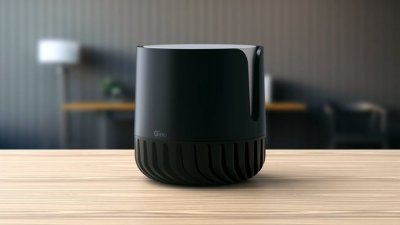
In response to Covid-19, Surrey Research Park tenant business, Smart Separations, a microfiltration company, launched Gino, a personal air sanitiser that destroys microbes in the air.
It uses their ViraTeq™ revolutionary lightless filter coating which is proven against coronavirus and other viruses, bacteria and fungi. Gino has an elegant, unobtrusive and economical design and a very low running cost.
Global study launched to examine impact of Covid-19 on health and wellbeing
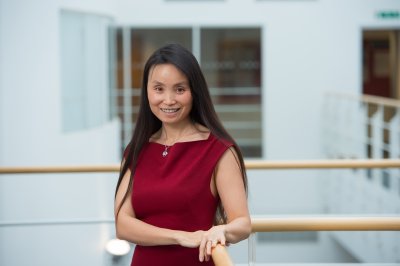
Dr YingFei Héliot (pictured), in collaboration with researchers at LSE and Nottingham Trent University, has launched a global study to examine the impact of Covid-19 on mental health and wellbeing. It aims to uncover social implications such as resilience, health attitudes and behaviour, political standing, and responsiveness as citizens. The study will provide evidence-based guidance for policy makers in dealing with population-based emergencies and foster growth after experiencing crisis and traumatic events.
Examining the wellbeing of gig workers during Covid-19
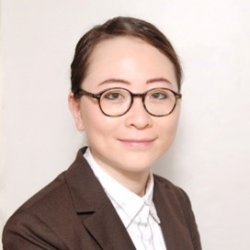
Dr Yanning Li (pictured) and Dr Tracy Xu are investigating the wellbeing of gig economy workers during lockdown. It aims to uncover how the Covid-19 pandemic influences the wellbeing of workers in the gig economy in the UK. This project will be beneficial for local authorities and public health-care managers to address the needs of low-income and relatively insecure group.
Connecting with nature during times of crisis: Understanding alternative use of spaces of leisure and recreation during lockdown

Professor Caroline Scarles and Dr Tracy Xu are working in collaboration with Dr Birgitta Gatersleben and Dr Kayleigh Wyles from the School of Psychology to investigate the impact of COVID-19 on people’s use of local, everyday spaces of leisure and recreation. The research seeks to understand how behaviour during lockdown is significantly different to pre-lockdown behaviours and how experiences during lockdown may influence changes in behaviour going forward. This is an ongoing survey and results will be shared in due course.
Sustainable mobility and Autonomous Vehicles after Covid-19
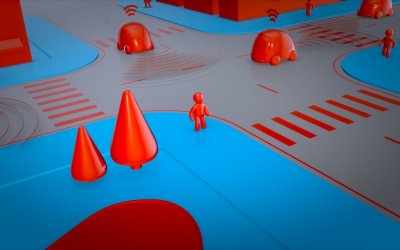
SHTM/SWELL have been administering in the UK a user survey focusing on travel preferences and Autonomous Vehicles. This is an activity of WISE-ACT, which is an international network of experts chaired by Dr Nikolas Thomopoulos. Since this user survey is co-ordinated with the Eurobarometer and administered in several countries across Europe, SHTM/SWELL researchers will collaborate with WISE-ACT to control user responses received before and after the COVID-19 lock-down across participating countries. Findings will be published in this upcoming Special Issue.
Pandemics, tourism and global change: a rapid assessment of Covid-19
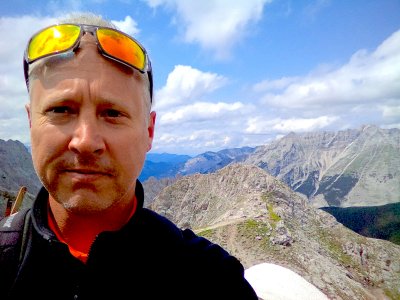
Professor Daniel Scott (pictured) co-authored the assessment of Covid-19 on the tourism industry that is currently the most read journal article in the world in this topic. It reviews how the current ban on travelling is affecting the tourism industry and what the consequences for the sector may be.
Connecting with nature during times of crisis: Understanding alternative use of spaces of leisure and recreation during lockdown

Professor Caroline Scarles and Dr Tracy Xu are working in collaboration with Dr Birgitta Gatersleben and Dr Kayleigh Wyles from the School of Psychology to investigate the impact of COVID-19 on people’s use of local, everyday spaces of leisure and recreation. The research seeks to understand how behaviour during lockdown is significantly different to pre-lockdown behaviours and how experiences during lockdown may influence changes in behaviour going forward. This is an ongoing survey and results will be shared in due course.
Link identified between dietary selenium and outcome of Covid-19 disease
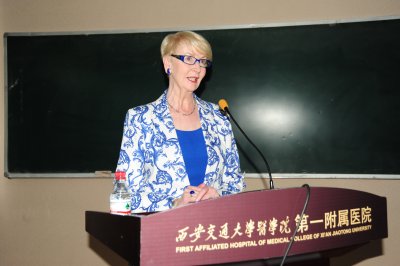
Professor Margaret Rayman (pictured) has led an international team of researchers in identifying a link between the Covid-19 cure rate and selenium status. Selenium is an essential trace mineral known to affect the severity of a number of viral diseases in animals and humans; its intake varies markedly across China. The Covid-19 cure rate in different Chinese cities was found to be significantly associated with selenium status, measured by the amount of selenium in people’s hair in those cities.
Examining the wellbeing of young people during the Covid-19 lockdown
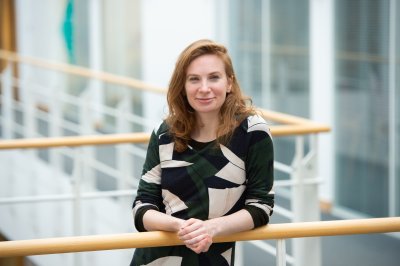
Dr Eleanor Ratcliffe (pictured) and Dr Birgitta Gatersleben are working with a local sixth form college to examine the wellbeing of young people during lockdown and their (use of) their living environment. Preliminary findings of the survey support the predicted importance of access to private spaces and natural environments for hedonic (mood) and eudaimonic (feeling connected to others, having a sense of purpose) wellbeing under lockdown.
Studying how different types of face masks can protect from the infection of SARS-CoV-2 in public built spaces
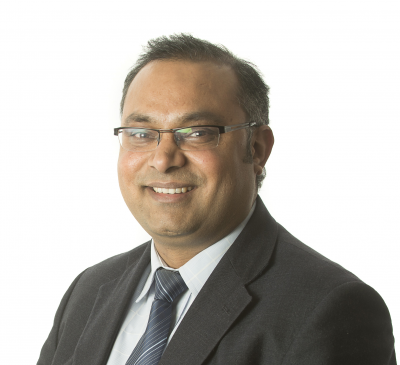
In response to the current global public health crisis, Professor Prashant Kumar (pictured) plays an active role in the clean air community. Currently, he is participating in two Royal Society Rapid Assistance in Modelling the Pandemic (RAMP) volunteer initiatives and is part of an international effort making a case for the recognition of airborne transmission. Among others, his team is studying the impact of lockdown on air quality in different cities, including ODA countries, and how different types of face masks can offer protection from the infection of SARS-CoV-2 in public built spaces.
Examining the challenges in plastics pollution post-pandemic
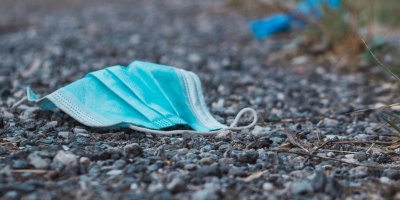
A team of researchers from the Universities of Surrey, São Paulo (USP) and Wollongong (UOW) are investigating the challenges in plastics pollution and waste-management, in the light of the impacts of Covid-19 on environmental/waste governance.
Read more about the Rethinking Plastics Pollution Post-Pandemic project, led by Co-Principal Investigators Dr Noreen O'Meara and Professor Rosalind Malcolm.